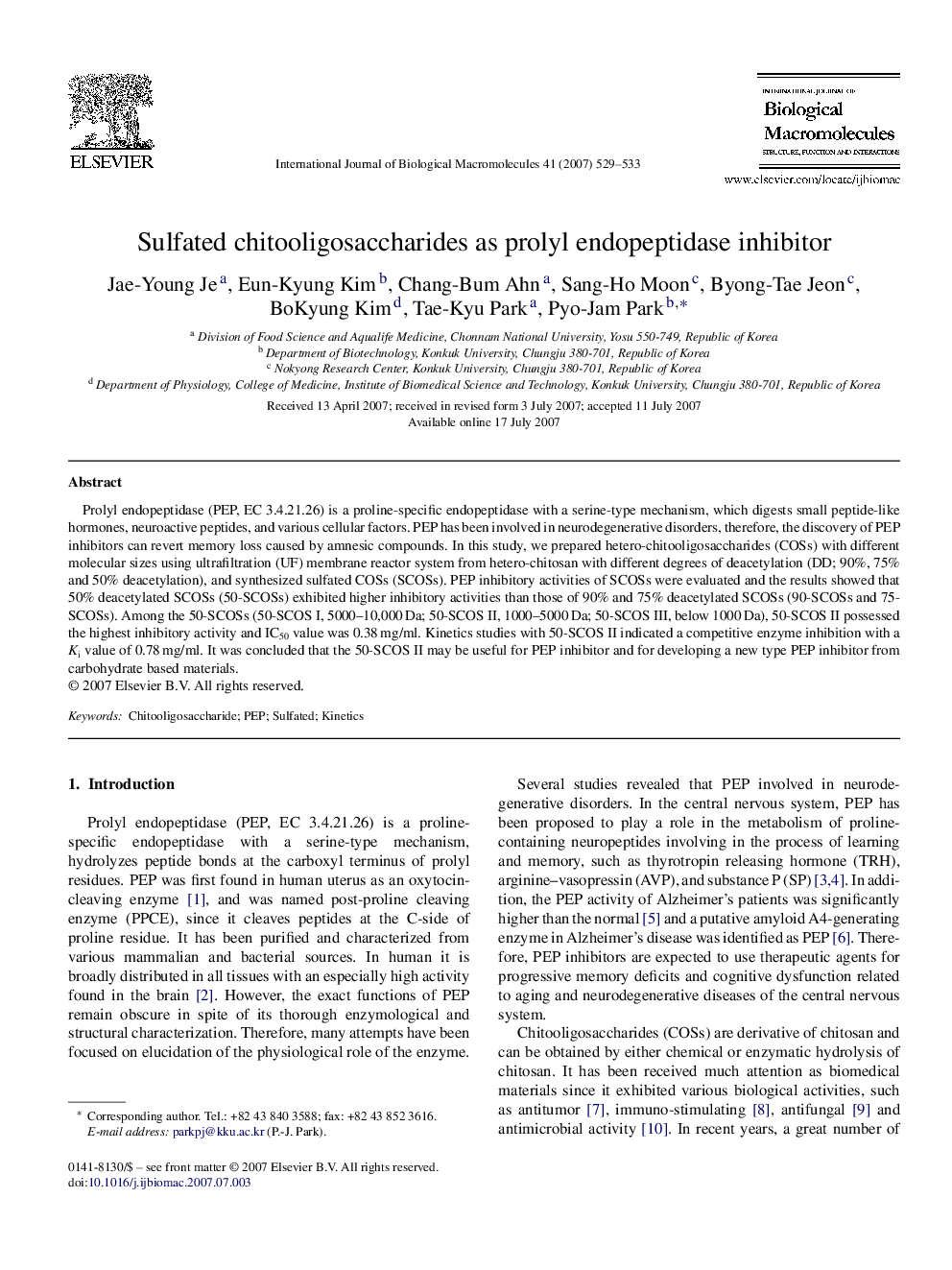| Article ID | Journal | Published Year | Pages | File Type |
|---|---|---|---|---|
| 1988238 | International Journal of Biological Macromolecules | 2007 | 5 Pages |
Prolyl endopeptidase (PEP, EC 3.4.21.26) is a proline-specific endopeptidase with a serine-type mechanism, which digests small peptide-like hormones, neuroactive peptides, and various cellular factors. PEP has been involved in neurodegenerative disorders, therefore, the discovery of PEP inhibitors can revert memory loss caused by amnesic compounds. In this study, we prepared hetero-chitooligosaccharides (COSs) with different molecular sizes using ultrafiltration (UF) membrane reactor system from hetero-chitosan with different degrees of deacetylation (DD; 90%, 75% and 50% deacetylation), and synthesized sulfated COSs (SCOSs). PEP inhibitory activities of SCOSs were evaluated and the results showed that 50% deacetylated SCOSs (50-SCOSs) exhibited higher inhibitory activities than those of 90% and 75% deacetylated SCOSs (90-SCOSs and 75-SCOSs). Among the 50-SCOSs (50-SCOS I, 5000–10,000 Da; 50-SCOS II, 1000–5000 Da; 50-SCOS III, below 1000 Da), 50-SCOS II possessed the highest inhibitory activity and IC50 value was 0.38 mg/ml. Kinetics studies with 50-SCOS II indicated a competitive enzyme inhibition with a Ki value of 0.78 mg/ml. It was concluded that the 50-SCOS II may be useful for PEP inhibitor and for developing a new type PEP inhibitor from carbohydrate based materials.
